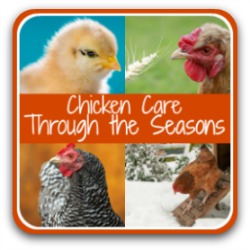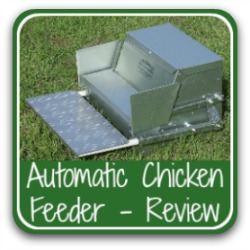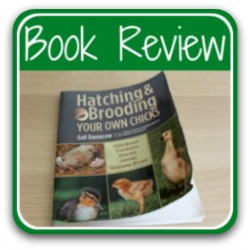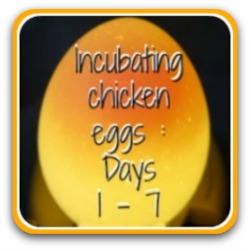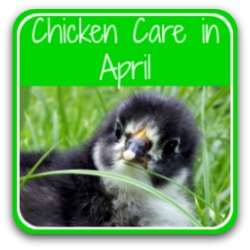How to care for your chickens when you're on vacation: 7 simple steps.
We may think no-one can look after our chickens as well as we can, but other people will – if we put a few simple precautions in place first!
So you're tired and jaded and need some time away, but you can't work out who could care for your flock as well as you do?
It happens to us all: no matter how much we love our chickens, we need a break.
Or perhaps you need to leave your home for other reasons: a family emergency, or working away, for example.
But how can we make sure our chickens are as well cared for as possible while we're away?
Whether you need a few days or a couple of weeks, with careful planning there are ways to manage it so you don't need to feel tied to your chickens all year round.
Here are 7 simple steps to make sure you get the holiday you deserve, or you can take that unexpected time away without needing to panic.
Please, take my advice and put these steps in place before you need them. The last thing you want is to realise you have nothing planned the night before you have to leave!
If you're part of my Chicken Digest group, you'll be gifted a free checklist to download with your spring and summer issues.
It's one of my monthly gifts to my friendly newsletter community.
Use it to leave with your chicken-sitters, to make sure they have all the right information for the best of care for your flock!
If you purchase a product through links on this page, I receive a small commission at no extra cost to you. I only recommend products I have purchased or would purchase myself and which I believe would benefit you. To learn more please see my disclosure policy.
Going away for up to 3 days? Following steps 1 - 3 means you won't need any outside help.
Longer than 3 days? You'll need to follow the rest of the steps too.
Step 1: Invest in an automatic feeder.
This is probably the best investment you'll ever make – it was certainly mine. In one fell swoop, it got rid of rats from my coop and run, and allowed my flock to eat at will by making sure they have secure access to food all day.
It has the added bonus of holding up to 20lbs of feed: enough to keep up to 12 chickens happy for up to ten days.
So even if you're on vacation for a couple of weeks, whoever is looking after your flock need top it up only once, at most twice.
Great for your flock, great for you, great for your chicken-sitters!
See my full review of the best feeder on the market, or if you've been thinking about it for a while and you're ready to buy, here's a link to purchase it on Amazon.
Don't forget other feed-related items...
Make sure you buy enough feed, oyster shell and grit to last for the whole time you're away – and a few days more in case your flights are delayed.
Step 2: Set up an automatic waterer.
There are lots of examples on the internet of home-made versions of drinkers which will keep your flock well hydrated for several days.
If you don't want the hassle of making something just before you go away, look at buying something like this.
It's well designed, easy to set up, automatically fills (using a water hose and float valve) and will keep a flock hydrated indefinitely.
Don't forget other methods of making sure your flock have enough liquids...
🚰 Remember to place your waterer in the shade
🚰 Add other bowls around the run so there's always water available.
🚰 In hot weather your chickens will drink a lot more than usual and may need some extra help to keep cool and hydrated. Ice in your watering pans will melt slowly during the day, so leave a stock in your freezer.
🚰 Buy in a couple of watermelons before you leave for your vacation. It's always a favourite with hens and pecking at it will make sure they keep cool in the hottest weather.
 My flock will do anything for some watermelon in the heat of summer!
My flock will do anything for some watermelon in the heat of summer!🚰 Finally, take a look here at how to recognise and manage heat exhaustion in your chickens – and send the link to whoever is going to care for your flock so they know, too.
Step 3: Automate your pop door!
If the automatic feeder and waterer were my best finds, having an automatic pop door has to be next on the list.
No more having to get up at the crack of dawn to let my flock out, no more rushing home to lock them safely away in the evening. All done automatically.
How does an automatic pop door work?
You have a choice of:
- setting it to the times you prefer, using the timer
- allowing it to open at dawn and close at dusk, using the light sensor
- simply using the button if you want to open or close it at different times.
Doesn't it trap the chickens? And do some chickens miss it?
I've had mine for over 8 years now, and I've never known a chicken get caught by the door. They naturally roost at dusk, and everyone is in long before it closes.
At dawn, there's a queue to get out!
It's true that sometimes a couple of my hens choose to roost outside in our bay tree, but they would do that whether or the door worked automatically or I closed it manually.
If you're worried about hens arriving after closing time, simply do a head-count once they're in and chase up any laggards.
If you're ready to buy one now, take a look at my preferred model on Amazon. Or read my full review, here.
Update: using Omlet's pop doors.
As soon as I bought an Eglu Cube, I invested in one of the company's automatic pop doors.
The advantages over the metal doors are these:
- It has sensors which make sure that, if a chicken is slow and the door is closing on her, it stops and allows her time to get in without harming her.
- The latest version can be used with an app, meaning you can control opening and closing time from your smart device. A real bonus if you're away from home.
- It can be used with any type of coop, not only the Eglu.
Caring for chickens on vacation: from this point you will need to find a human to manage the remaining steps.
Step 4: Grow some sprouts!
Not just sprouts, but leave a nice mixture of treats for your chickens while you're away.
It's likely that whoever looks after them won't spend the kind of time you do with your flock, and it's not a good idea to free range them while you're away – chicken-sitters are usually too anxious to be able to manage free-ranging safely.
Treats will keep your chickens happy and occupied, and watching the flock running to greet the treat-carrier will make your chicken-sitters smile.
 Sprouted lentils - yum!
Sprouted lentils - yum!It takes very little effort to grow some sprouted lentil seeds (instructions here) or prepare some frozen treats to leave for your hens.
And explaining to your house-sitters how to play the swinging lettuce game will keep them, as well as your flock, entertained for hours!
Step 5: Prepare for emergencies.
They happen, and the last thing you want is panic phone calls while you're away. So be prepared.
- Check your coop thoroughly for predator-type entrances before you go. Fix any breaches in fencing, block even the tiniest holes in the coop. You don't want your sitters having to deal with rodents.
- Leave the name, contact number and address of your preferred veterinarian (my download includes this information).
- Have an emergency pack (including Vetericyn which you should never be without!) and explain to your sitter how to use whatever's in it.
- Unless you're very sure of your sitter's ability to care for them, don't leave anyone in charge of hatching eggs or very young chicks. Too much can go wrong.
- Finally, make sure your sitters know that if a chicken dies or is killed, it's not the end of the world (although they and you might feel like it is). You may want them to come again and if you make a big deal of it, they won't.
Step 6: Find a responsible person.
If you have automated systems in place and you're away for just two or three days, you probably won't need to involve anyone else. Eggs will be fine left in the coop, although expect them to be dirty when you return.
But if you're going for longer, you can't risk leaving your flock to their own devices.
Not sure who you can ask? Think about these people.
- Partner / children: If you're going away by yourself, this is an obvious answer. Older teenage children should be able to complete the tasks you set, perhaps with the back-up of an adult available should they be worried about anything.
 Children can enjoy helping with chickens - and it gives them a sense of responsibility.
Children can enjoy helping with chickens - and it gives them a sense of responsibility.- Other family members: Remember: what is an "ordinary" place to live for you, is out of the ordinary for other people. So if you have a distant cousin or a long-lost friend who lives in a different environment to you, offer them a stay at your home for free, in return for looking after your flock.
- Neighbour: It's easy to discount neighbours, but if you explain what they'll be getting in return – delicious, healthy fresh eggs and some stress relief as they watch your chickens go about their daily business – you may be surprised by their enthusiasm.
- House-sitter: A lot of people would worry about a complete stranger coming into their home, but we've used house-sitting services a couple of times and have made life-long friends as a result.
- Advertise locally, or look at social media platforms or a commercial scheme like Trusted House-Sitters (which is what we've used). Just be careful about who you pick, and make sure you "interview" them before accepting their offer.
Step 7: Download my free chicken sitter checklist.
No matter how well you automate, the fact is that for a longer absence your flock will need caring for every day. Your helpful chicken-sitters will need to undertake a series of tasks which to you are common sense, but for them are new and probably daunting.
Ideally, you need to walk them through the tasks before you leave and in addition, speak to them about how to...
- check the flock visually for any problems that might be brewing
- know what to do in the event of a chicken falling ill, and where your emergency first aid kit is
- understand how you keep predators from your run, and how to be alert to signs of any potential danger.
To help you prepare for your helpful guests and to help them remember what they need to do, I've prepared a free, downloadable checklist for you to complete and leave with them.
To get the checklist and my free newsletter, sign up here. The checklist comes with the newsletter in the spring each year, with another chance to download it in summer.
And finally...





